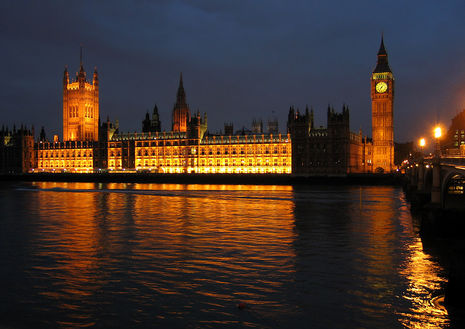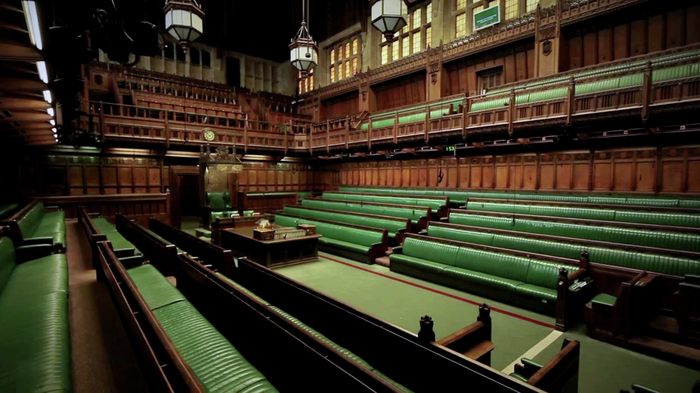I stand by my sixteen-year-old self’s vote
Daisy Stewart Henderson argues that allowing sixteen-year-olds to vote doesn’t have to be a radical prospect

I cast my first vote in a local council election about a week before my seventeenth birthday. And I stand by it. Since then, I’ve voted in every election I was able to, and have cast my ballot for the same party each time.
I think it was right that, as a quirk of devolution, I was able to vote at sixteen as a consequence of living in Scotland. But I also think that, in a lot of ways, Scotland is getting it wrong. Votes at sixteen have been followed by a slew of proposals to dramatically extend the rights of sixteen-year-olds in Scotland: unlike in the rest of the UK, they can already get married, and outlandish proposals such as allowing sixteen-year-olds to become MSPs, or chose to legally end their own lives through assisted dying legislation, have been discussed seriously in the Scottish Parliament.
“We can promote the empathy missing from our politics”
These ideas miss the mark because, fundamentally, giving sixteen-year-olds the vote isn’t about blindly extending their freedoms, or shortening the span of childhood. It may sound pedantic, but I think the distinction is quite important. We shouldn’t give sixteen-year-olds the vote because they’re adults. Instead, we should recognise them as occupying a distinct stage – the tail end of childhood – and accommodate this as appropriate.
I often joke to my friends that I was a lot more competent at sixteen or seventeen than I am now. I had mastered my childhood environment, rather than stumbling through the adult world at an infantile stage of “grown-upness”. It’s a unique, somewhat paradoxical age, where children begin to face adult responsibilities and experiences. And I can say from experience that, bearing this in mind, casting a vote at sixteen felt natural.
So while it might sound silly to support enfranchising a group who are too young to drive a car or buy alcohol, I think that, when the nuance of each act is taken into account, it’s perfectly rational. Sixteen-year-olds are in the thick of a period of exams which quite literally determine the trajectory of their lives. They’re making decision after decision at a level of personal significance that crops up only infrequently in the lives of most adults: what degree to apply for, what city to move to, what career to pursue…
“Why should teenagers care about politics if it remains theoretical”
And that’s not to mention the almost 10% of sixteen-to-eighteen-year-olds who aren’t in education or training, and may already be functioning, for all intents and purposes, as adults. By trusting teenagers with significant national decisions as well as individual ones, we can help to promote the empathy, and the sense of responsibility for the lives of others, that often feel so desperately missing from our politics.
There’s also the fact that no small number of teenagers are as educated as they’re ever going to be. I certainly knew a lot more about differentiation, or the respiration of cells, or the formation of a waterfall when I cast my first vote than I do now! And unfortunately, for many, the basics of our political system are not particularly different from these rather theoretical topics. Almost three-quarters of British teenagers believe that politics should be taught more in schools, recognising this information as more trustworthy than what they read on social media. There has been a 20% increase in enrollment in politics and international relations degrees over the last ten years or so. Clearly, there is an appetite for political education. But education will only go so far without tangible opportunities for political engagement.
Perhaps by giving sixteen and seventeen-year-olds a sense of responsibility, the feeling that they are being offered a seat at the political table, we can reverse sentiments of apathy before they have a chance to take root. Why should teenagers care about politics if it remains, fundamentally, a theoretical exercise in which they cannot participate? If only one in ten children in Britain grow up feeling that politicians prioritise their needs when making decisions, why should we expect their political engagement when they turn eighteen?
Offering sixteen and seventeen-year-olds the vote is a way of extending an olive branch. It should invite them to take part in our democratic process, not as a means of erasing their youthful status, but rather in recognition of it. By trusting them to exercise their maturity to make judgements that affect not just themselves, but also others at drastically different stages in life, we promote the empathy which should be the aspiration of our politics. Like a foreign language or a musical instrument, perhaps this outlook is most easily picked up by the young. I certainly wouldn’t undo my sixteen-year-old self’s vote. In my life, at least, it counted for a lot more than another paper in the ballot box.
 News / Colleges charge different rents for the same Castle Street accommodation2 March 2026
News / Colleges charge different rents for the same Castle Street accommodation2 March 2026 News / King’s hosts open iftar for Ramadan3 March 2026
News / King’s hosts open iftar for Ramadan3 March 2026 Theatre / Lunatics and leisure centres 4 March 2026
Theatre / Lunatics and leisure centres 4 March 2026 News / Angela Merkel among Cambridge honorary degree nominees27 February 2026
News / Angela Merkel among Cambridge honorary degree nominees27 February 2026 News / News in Brief: waterworks, wine woes, and workplace wins 1 March 2026
News / News in Brief: waterworks, wine woes, and workplace wins 1 March 2026








